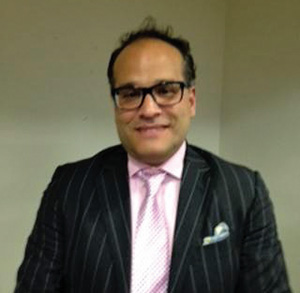
The Jewish Federation of Northern New Jersey continued its FED Talks series with an intriguing topic and a strong speaker. The event, which took place at its Paramus campus on Thursday evening, January 31, focused on the reasons Israel has had such success in business/technology creation, and whether other countries are beginning to catch up.
Ari Zoldan, CEO of Quantum Media Group, LLC, made it clear from the outset that his talk would be heavily interactive. Zoldan, an Orthodox Jew who has made guest appearances on most major cable news programs, is in the unique position of having clients both in Israel and the Muslim world.
Zoldan began with a personal story of his time in Israel nearly 25 years ago. It was October of 1994. He was finishing his senior year of high school in Israel. He was with a group of friends at a restaurant, when suddenly they heard gunshots. Three members of Hamas were seen running down the street. They entered the restaurant, to the shock of the group of 17-year-olds sitting at the table. He didn’t go into much detail, but explained that three Israeli soldiers happened to be across the street at the time, with the end result that two of the Hamas members were killed and the third captured. Just a month after that trauma, he received a call from his parents informing him that they were getting a divorce. Stating the obvious, he said that his memories of those times in Israel were not particularly good, which was why 20 years passed before he returned.
When he did finally return, it was with his wife and children. He spent a month there and parked himself at WeWork every day, fascinated by the innovation. Thus began his close relationship with the start-up nation.
Zoldan related that he’s consulted with representatives in Dubai, Jordan and South Sudan, and noted that they are innovating at a very fast pace, with Israel closely monitored as a role model. Based on those observations and others discussed later, Zoldan asked the audience whether they believe Israel can sustain its competitive advantage. First, though, he was interested in what they believe are the “secret sauce” ingredients that have allowed Israel to become a world leader in innovative technology.
Responses included the rigorous military training of nearly all Israel’s young citizens, which has bred superb leadership qualities. Other suggestions focused on Israel’s hostile environment. This includes both its physical landscape, which is not rich in natural resources, and its location—surrounded by enemies. Each requires heavy innovation and out-of-the-box thinking in order to survive.
Strong cooperation between the government and private sectors was another key factor mentioned, with generous incentives routinely given to start-ups. The country’s focus on education, particularly on practical education, was a response echoed by several audience members. Still others noted that Israel is replete with a strong pool of relatively recent immigrants who have applied their talents in a productive manner. Zoldan added that it wasn’t just the Russians, but the Sudanese, who have had a positive impact in this regard. The fact that Israel is “mitzvah-oriented,” as shown by its disaster relief efforts around the world, was also mentioned.
When Zoldan finally closed the discussion, he noted that 90 percent of the reasons for Israel’s success had been covered, with one significant exception: the U.S.-Israel alliance. Close cooperation, strong U.S. investment in Israel, loan guarantees that have opened the economic door for Israel across the globe, access to the U.S. stock market and its marketing strength, have all come into play. He noted dryly that the U.S. and Israel have opposite problems that probably add to the symbiotic relationship. “The U.S. is great out of the box, with its marketing, branding, packaging and PR, but Israel has the goods. Its technology can’t be touched, but needs polishing.”
Zoldan spoke of the respect other nations have for Israel. At a lecture on innovation for students in Ankara, Turkey, a student asked, “Will we ever be like them?” with the unstated “them” referring to Israel. Zoldan asked her two questions: “How many people live in Turkey?” and “Are you comfortable?” She said 80 million people, and with a population that is 98 percent Muslim, she did feel comfortable. He answered, “That’s why you are not like Israel.” Zoldan added that Turkey has the potential to be an innovative powerhouse.
An official in Dubai asked a similar question: “Can we innovate like Israel?” Zoldan noted that Israel is in survival mode on a daily basis, but when oil is no longer present in Dubai, it too will feel the need to cooperate with others.
All that aside, Zoldan believes Israel must not be complacent. In fact, he feels the time to double down is now, or face very tough challenges 20-30 years down the road. China can and presently does copy and paste Israel’s technology, and can bring it to market more efficiently. Meanwhile, countries like Dubai and Qatar can just buy the technology with their vast wealth, so there’s no need to innovate. His message to Israel, based on his travels and findings across the globe, couldn’t be clearer.
By Robert Isler
Robert Isler is a marketing researcher and freelance writer who lives in Fair Lawn. He can be reached at [email protected].













